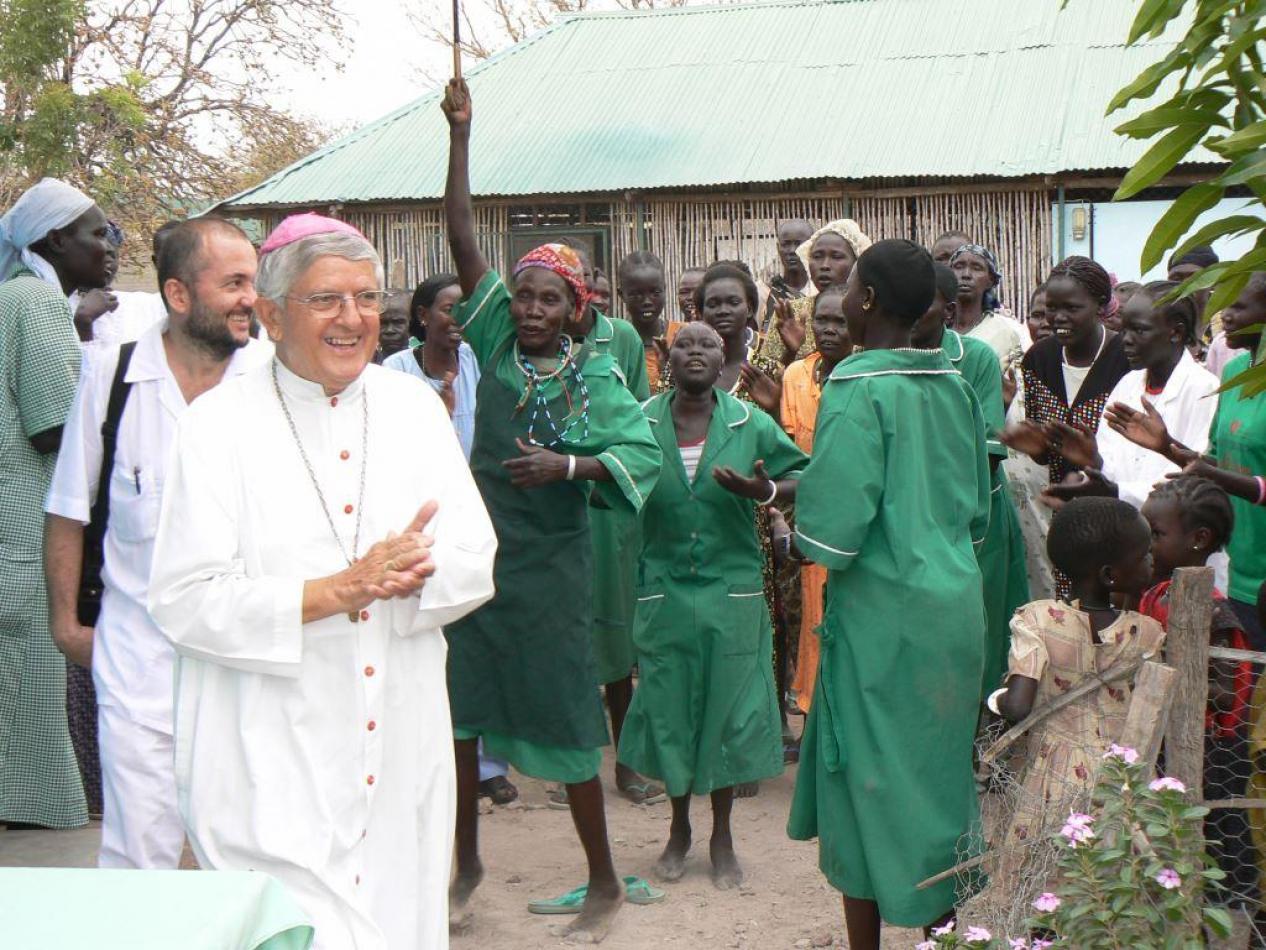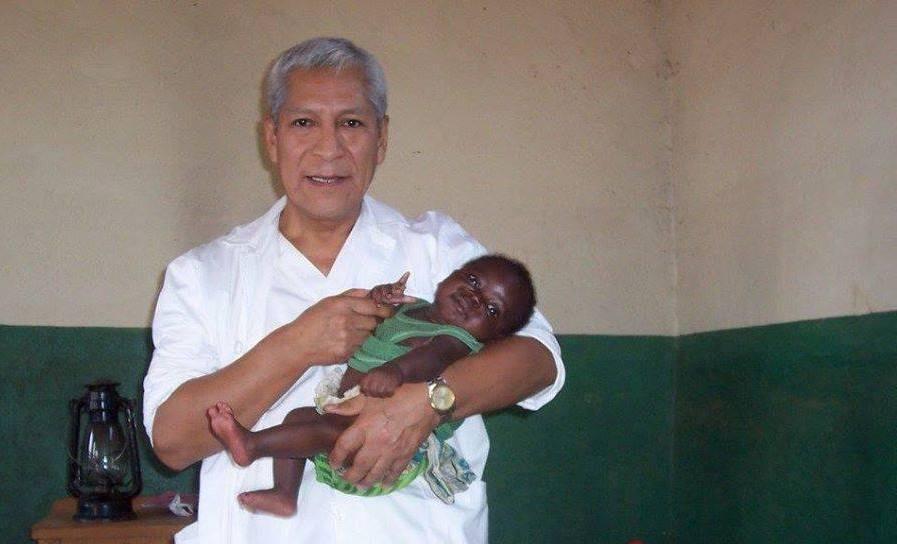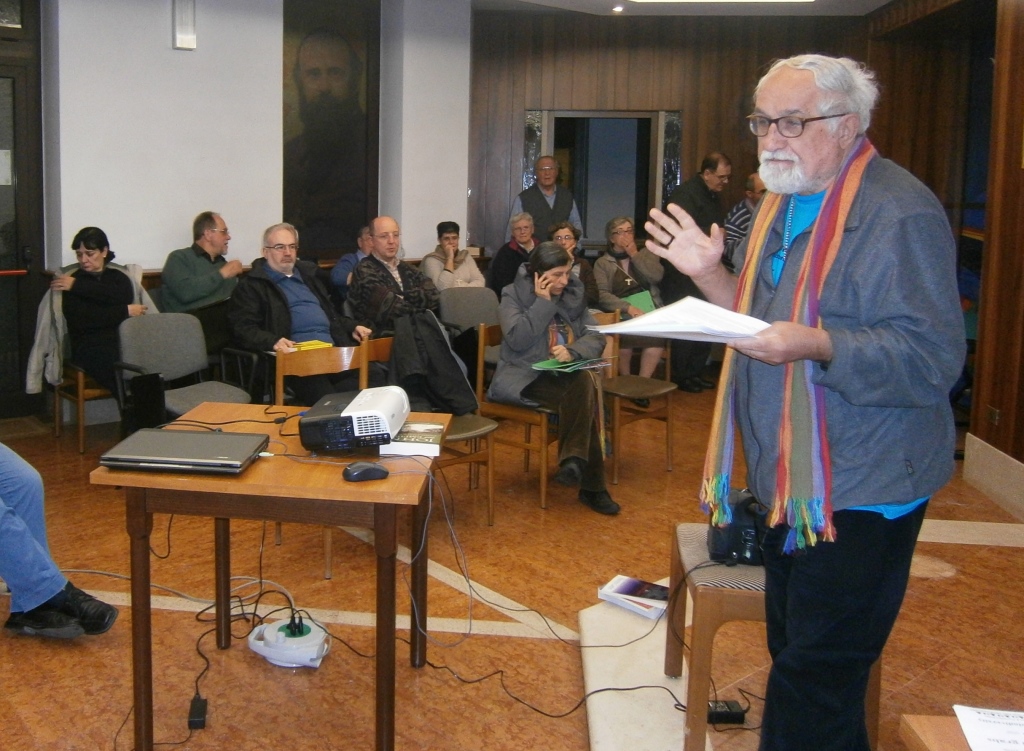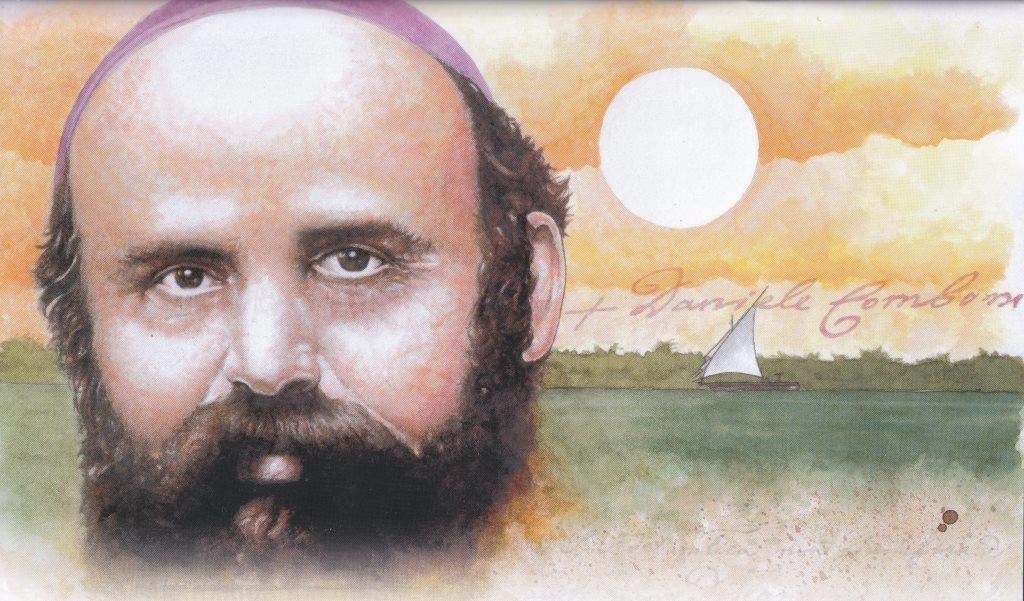Daniel Comboni
Comboni Missionaries
Institutional area
Other links
Newsletter
Tuesday, October 20, 2020
“Mary Immaculate Hospital was established in February 2002 in Mapuordit, a remote village in the savannah in the Diocese of Rumbek. About 5.000 people live there and the majority of them escaped in April 1992 from the city of Yirol, 65 km East of Mapuordit, when Khartoum army recaptured the town from SPLA rebel soldiers (Sudan People's Liberation Army) and slaughtered the civilians who couldn’t escape in time.” (…) [In the picture: Bishop Cesare Mazzolari and Br. Rosario Iannetti]
HOSPITAL AND HEALTH SYSTEM
IN SOUTH SUDAN
Mary Immaculate Hospital was established in February 2002 in Mapuordit, a remote village in the savannah in the Diocese of Rumbek. About 5.000 people live there and the majority of them escaped in April 1992 from the city of Yirol, 65 km East of Mapuordit, when Khartoum army recaptured the town from SPLA rebel soldiers (Sudan People's Liberation Army) and slaughtered the civilians who couldn’t escape in time.
Diocesan Father Raphael Riel of Diocese of Rumbek (DOR) guided the people who were fleeing from Yirol, and chose Mapuordit to found a village for the refugees and for the new mission as it was hidden by the savannah and far from the main road connecting Yirol to Rumbek which was combed by the Sudanese Armed Forces' army trucks.
The New Sudan Group of Comboni Missionaries was operating in liberated zones under the direct responsibility of the General Curia of the Comboni Missionaries, whose community in Yirol had been evacuated shortly before the attack of the Sudanese Armed Forces. They decided to help Fr. Riel to start the new mission. Fr. Pellerino and Fr. Barton were sent to Mapourdit in March 1993 to establish respectively the parish and the primary school. Later, in 1998, a secondary school was founded.
The Sisters of Our Lady of Sacred Heart (OLSH) from Australia, arrived in Mapuordit in 1995, and founded a small dispensary made up of three huts. Local people affected by the war and periodically threatened by famine were in desperate need of healthcare. There were no hospitals in the area and surgical patients had to be referred to the ICRC's Lopiding hospital in northern Kenya over 1.000 kilometres away, after the dispensary had radioed the Red Cross Radio for help. Mothers who needed caesarean section often did not arrive in Kenya for a happy delivery.
The Comboni Father Cesare Mazzolari, Bishop of the Diocese of Rumbek (DOR), developed the idea of founding a small field hospital along with the dispensary in 2001. The aid station was equipped with a surgical tent from the University of Trnava (Slovakia) that also sent one rotating surgeon and two rotating nurses every 3 months. Nevertheless, a permanent doctor was missing on the spot; it was necessary to coordinate the activities of the Slovakian medical staff with the activities of the paramedical local staff in need of education as it was low skilled. Further, a Medical Director was needed in the new hospital.
The Bishop asked his own congregation for help, and Fr. Ezio Bettini, the Superior of the Delegation of South Sudan, asked me to make myself available to the diocese to cooperate in the establishment of a rural diocesan hospital in Mapuordit. Although he made it clear to the Bishop that my assignment was ad personam, and that the congregation was not taking over the running of the hospital, he also called in Br. Alberto Lamana, an expert electrician, who, among other responsibilities, would also supervise the technical development and the hospital maintenance. Since its inception in 2002, the hospital has seen a strong involvement by the Comboni Missionary Brothers in its founding and managing. The Comboni Missionaries presence has always been a constant in the history of the hospital, and still continues to be a constant now with the presence of a minimum of 2 to a maximum of 4 Comboni brothers.
The option to educate informally local young people who had attended the mission's secondary school made possible the development of the hospital in relatively short time, despite the isolation caused by the civil war, the limited financial resources and the lack of local qualified personnel. Some female registered nurses from Uganda and a laboratory technician woman from Italy were employed as instructors. Registered nurses came from St. Kizito Matany Hospital in Uganda that was run by the Comboni Missionary Sisters so they were motivated to convey the Christian values - and not just skills - of the service to our sick neighbour to South Sudanese people. Obviously, the long-term purpose was to set up a formal registered nursing school inside the hospital; however, due to the war and to the lack of funds this dream came true only in 2009. In its first ten years of existence, the hospital mainly worked thanks to local auxiliary nurses who were educated by means of theoretical courses and practice under the supervision of some Ugandan and Australian registered nurses and Comboni Missionary Brothers nurses.
Since 2005, right after the peace agreement and the formation of the South Sudanese autonomous government, the hospital's facilities have increased rapidly thanks to the contribution of state-owned (the Italian Agency for Development Cooperation) and ecclesial (mainly from Slovakia, Austria, Italy and Germany) donors eager to contribute to the country's reconstruction after the war. As a consequence, in 2006 the hospital was mostly built with permanent materials and had about 100 beds and 5 wards (surgical, medical, maternity, paediatrics and surgical septic), one operating room, one laboratory and a triage. However, completion of all remaining facilities with permanent materials (pharmacy, surgical unit, antenatal care, radiology and isolation) and the finishing of water, medical, and electrical services slowly continued until 2017. The direct catchment area was of 90.000 people who were resident within a 40-km radius; some patients even came from up to 200 km away to undergo surgery (around 1.000 surgical operations a year were performed on average until 2013).
Since 2005, the Comboni Province of South Sudan had slowly but progressively entered the hospital management and opened a specific account for it. It also had started a direct fundraising besides providing 3 Brothers who worked full time in the hospital.
Meanwhile, the Diocesan Commission on Health of the DOR that was still legally responsible for the hospital management was changing into an NGO in 2006 (AAA: Arkangelo Ali Association) and it was limiting the field of activity to TB (Tuberculosis) and leprosy even outside the diocese.
There were tensions with the hospital management team as the former field hospital had reached the dimension of a regional hospital; the Lakes State's Ministry of Health (MOH) requested from the hospital all kind of health services in exchange for the payment of wages of 50 workers and the provision of some medicines by the same ministry.
After the approval by the Provincial Assembly in January 2009, on the 1st of February in 2009 Superior Provincial of South Sudan, Fr. Luciano Perina, and Bishop Mazzolari signed a MOU (Memorandum of Understanding) where the Comboni Province of South Sudan assumed the management of the hospital for 5 years while the AAA continued to support the activities related to TB and Leprosy programs. The MOU was renewed in 2015 by new Provincial Fr. Daniele Moschetti and Diocesan Coordinator Fr. Mathiang: it is expiring on the 30th of June 2020.
Since the 1st of July 2016, the management of the hospital was handed over to Br. Dr. Paolo Rizzetto, while I was transferred to Wau at the end of November 2016. Now, I am serving at the St. Daniel Comboni Catholic Hospital and I am working closely together with the Comboni Missionary Sisters who founded this hospital in 2011.
About the results achieved, undoubtedly Mary Immaculate Hospital has been an extraordinary pre-evangelising tool for Dinka and Jur Peoples of the Eastern Lakes State and of the Amadi State. These tribes - who are still followers of traditional and illiterate religions - greatly appreciate the service rendered by the hospital which is often the first opportunity to them to meet Christian faith. The Mass is celebrated regularly on Sundays in the hospital under a canopy working as a waiting room. Many patients and their relatives watch from a distance and they are intrigued by this odd and new ceremony they have never seen before. Unfortunately, we have no chaplain assigned to the hospital in order to look after sick people consistently, and mainly the few Catholics. However, a priest from the Comboni community is always at disposal in case a sick patient or his/her relatives ask for the sacrament of the anointing of the sick.
The hospital is also a place of meeting and dialogue between tribes and clans; here they interact with one other both as workers and patients. Unluckily, coexistence is not easy; the hospital was the centre of repeated tribal warfare in 2004, 2006 and 2011. This caused the permanent expulsion of workers belonging to clans which are different from the prevailing one in Mapuordit (Dinka-Atout), and mainly of Dinka-Agar, Dinka-Jang and Jur workers. In the last 5 years, Dinka-Agar patients can no longer come to the hospital to be cured, although they live just 20 km away from Mapuordit. All the area is in a situation of permanent insecurity due to the abundance of weapons among young civilians from the outbreak of a new Civil War in December 2013. The hospital vehicle was struck by bullets twice, in 2015 and in 2016; Fr. Placide Majambo was the first one to be injured; later, it also happened to the driver.
The hospital has always been a place for the education and training of dozens of young paramedics and doctors that are now working in many hospitals and dispensaries all over South Sudan.
Sustainability and continuity of the work are the major challenges now. The financial support from the Ministry of Health has rapidly decreased in 2016 due to hyper-inflation. Before that moment, the aid given has always been strong (mainly from 2007 to 2015, as a consequence of a MOU between DOR and Lakes State's MOH signed in 2010). Unfortunately, hyper-inflation practically zeroed the real value of the wages paid by the government to half of the staff. The hospital was therefore forced to pay 95% of the real value of government wages (increased by a compensation for inflation). Since April 2019, the government also zeroed the provision of medicines. The DOR is facing hardship - also because of the absence of Bishop since 2011 - in taking again the full management of the hospital as the Comboni Missionaries wish on expiry of the second five-year MOU on the 30th of June in 2020.
What did we learn from this experience?
According to me, the classical Comboni method is still valid in the XXI century;
- To Save Africa with Africa: Ugandan nurses educated professionally and with Christian values in a Comboni Ugandan hospital had a crucial role to the development of the hospital. Given their cultural and ethnic proximity to South Sudanese, these health professionals revealed themselves to be more efficient than European or Australian female nurses.
- Cooperation of the local dioceses with different religious congregations, international ecclesial benefactors, NGOs, Italian and Slovakian State Cooperation, UN agency (WHO and WFP) and the South Sudanese Ministry of Health: the inception and development of the hospital was based on a strong and continuous collaboration among multiple and different religious, secular and state entities. The hospital is one of the few diocesan institutions in South Sudan to receive considerable and direct funds both from the South Sudanese Ministry of Health and the Italian and Slovakian International Cooperation.
Br. Dr. Rosario Iannetti
Comboni Missionary Brother
South Sudan




